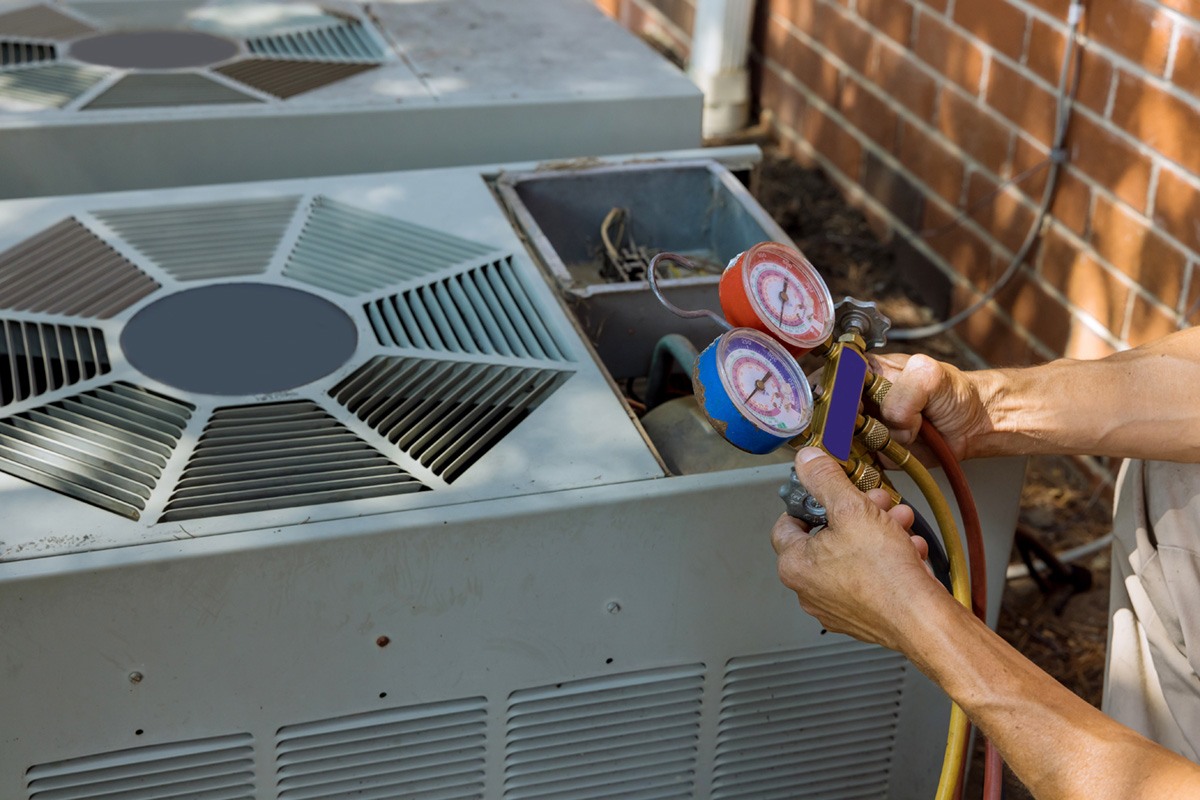Energy efficiency is no longer a luxury but a necessity for businesses and organizations aiming to reduce operational costs and minimize their environmental impact. As energy prices fluctuate and sustainability becomes a growing priority, many companies are turning to Energy Performance Contracts (EPCs) as a strategic solution. These contracts not only address energy consumption challenges but also offer a practical way to upgrade existing systems without significant upfront investments. This article explores the benefits of EPCs, the pivotal role played by experienced HVAC contractors, and how partnering with experts like Aircond.Network can drive measurable improvements for your facility.
What is an Energy Performance Contract (EPC)?
Energy Performance Contracts (EPCs) are agreements designed to improve energy efficiency through a comprehensive plan that includes assessments, system upgrades, and ongoing performance monitoring. At the heart of these contracts is an energy audit—a detailed analysis of current energy usage patterns—which identifies areas where improvements can lead to significant savings. The process involves:
- Initial Energy Audit: A thorough evaluation of a facility’s energy consumption to pinpoint inefficiencies. This audit examines HVAC systems, lighting, insulation, and other energy-consuming components.
- Identifying Improvement Opportunities: Based on audit findings, experts develop a plan that may involve upgrading outdated HVAC systems, installing advanced control systems, or integrating new technologies that reduce energy waste.
- Performance-Based Savings: EPCs typically function on a performance-based model. The energy savings achieved through the proposed improvements help finance the project, often requiring little to no upfront capital from the client.
- Continuous Monitoring and Maintenance: After improvements are implemented, the system’s performance is regularly monitored to ensure that energy savings are maintained over time. This ongoing process allows for adjustments and fine-tuning as needed.
By linking energy savings directly to project financing, EPCs provide a risk-mitigated path to energy efficiency, making them a popular choice for facilities with limited capital budgets.
The Role of an HVAC Contractor in EPCs
A skilled HVAC contractor for Energy Performance Contracts (EPCs) plays a central role in ensuring that a facility reaches its energy efficiency goals. Their expertise spans from conducting energy audits to implementing cutting-edge HVAC solutions that lower energy consumption and operational costs. Here’s how these contractors contribute to the success of an EPC:
- Comprehensive Energy Audits: The contractor begins with a detailed audit of the existing HVAC systems, identifying inefficiencies and opportunities for improvement. This process is crucial in setting a baseline for potential energy savings.
- System Upgrades and Modernization: Once inefficiencies are identified, the contractor recommends and installs new equipment or retrofits existing systems. This may include replacing outdated chillers, upgrading air handling units, and installing smart thermostats that adjust temperatures based on real-time occupancy and weather conditions.
- Advanced Controls and Automation: Incorporating modern control systems allows for precise regulation of energy consumption. These systems can automatically adjust settings to optimize performance, resulting in lower energy usage without compromising comfort.
- Ongoing Maintenance and Performance Monitoring: An effective EPC doesn’t stop at installation. HVAC contractors provide continuous maintenance and performance monitoring services, ensuring that the system operates at peak efficiency. Regular servicing prevents energy losses due to wear and tear, and performance data is used to make necessary adjustments.
- Customization to Facility Needs: Each facility has unique energy requirements. An experienced HVAC contractor customizes EPC solutions to meet the specific needs of a facility, ensuring that energy-saving measures align with operational demands and building characteristics.
Working with a seasoned HVAC contractor ensures that every stage of the EPC—from assessment to long-term maintenance—is handled with precision. This collaborative approach helps businesses achieve a balance between operational efficiency and energy conservation.
Benefits of Energy Performance Contracts for Businesses
Implementing an Energy Performance Contract brings a host of advantages that extend well beyond reduced energy bills. Here are some of the key benefits that businesses can expect:
Cost Savings: One of the most compelling benefits of EPCs is the potential for significant cost reductions. By modernizing HVAC systems and optimizing energy consumption, facilities can see a noticeable decline in their monthly energy expenses. The savings realized are often used to cover the project costs, meaning that there is minimal financial risk to the client.
Improved Energy Efficiency: Upgrading outdated systems and incorporating advanced controls leads to more efficient energy use. An optimized HVAC system operates with greater precision, reducing waste and ensuring that energy is used where it is needed most. This improvement in energy efficiency directly translates to lower operating costs and a smaller environmental footprint.
Sustainability and Environmental Impact: For organizations committed to sustainable practices, EPCs offer a way to contribute to environmental conservation. Reducing energy consumption lowers greenhouse gas emissions, helping companies meet sustainability targets and regulatory requirements. This proactive approach to environmental stewardship can also enhance a company’s public image and appeal to eco-conscious consumers.
Enhanced Operational Performance: Beyond energy savings, EPCs improve overall system performance. Modern HVAC systems provide better air quality and temperature control, which can lead to increased comfort and productivity in workspaces. This improvement not only benefits employees but also creates a more inviting environment for customers and visitors.
Risk Mitigation and Financial Flexibility: The performance-based nature of EPCs means that the project’s success is directly tied to the energy savings achieved. This arrangement minimizes financial risks and allows companies to pursue upgrades without significant initial outlays. Financial flexibility is especially valuable for organizations operating under tight budgets or those looking to invest in other critical areas of their business.
Long-Term Benefits: EPCs are designed to provide ongoing benefits well into the future. With continuous performance monitoring and regular maintenance, energy savings are sustained over time, making EPCs a long-term solution for energy management challenges.
Why Choose Aircond.Network for EPC Solutions?
With over 25 years of experience in Singapore’s HVAC industry, Aircond.Network has established itself as a trusted name when it comes to delivering customized EPC solutions. Companies seeking to reduce energy consumption and lower operating costs can rely on their extensive expertise and proven track record. Here’s what sets Aircond.Network apart:
Decades of Industry Experience: The extensive experience of Aircond.Network translates into a deep understanding of HVAC systems and the unique challenges faced by commercial and industrial facilities. Their long history in the industry ensures that clients receive advice and solutions that have been refined over years of practical application.
Proven Success with EPCs: Aircond.Network specializes in providing EPC solutions that result in measurable energy savings. Their approach is grounded in detailed energy audits, state-of-the-art equipment upgrades, and advanced control systems that collectively contribute to reduced energy costs and improved performance.
Commitment to Sustainability: A core principle of Aircond.Network’s service is the commitment to sustainability. By reducing energy consumption, they help businesses lower their carbon footprint, making it possible for organizations to align their operations with environmental goals and regulatory standards.
Expert Project Management: From the initial audit to the final performance monitoring, every step is managed with precision. Aircond.Network coordinates all aspects of the EPC process, ensuring that projects are completed on time and deliver the expected savings.
Customized Solutions for Every Facility: Recognizing that every facility is different, Aircond.Network develops strategies that address the specific needs of each client. This customized approach ensures that the implemented solutions are not only effective but also seamlessly integrated with existing operations.
Dedicated Support and Maintenance: The relationship with Aircond.Network doesn’t end once the project is completed. Their team remains available for ongoing support and maintenance, ensuring that the systems continue to operate at optimum efficiency over the long term.
For businesses looking to make a measurable impact on their energy consumption and operational costs, partnering with a reliable expert is essential. Aircond.Network’s track record and commitment to quality make them an ideal choice for those exploring the benefits of EPCs.
How to Get Started with an Energy Performance Contract
Taking the first step towards improved energy efficiency is straightforward. Here are the key steps to get your facility on track with an EPC:
Schedule an Initial Consultation: Contact a reputable HVAC contractor who specializes in Energy Performance Contracts. During this consultation, experts will discuss your facility’s current energy usage, potential areas for improvement, and the benefits you can expect from an EPC.
Conduct an Energy Audit: The next step involves performing a detailed energy audit. This audit provides a comprehensive overview of your facility’s energy consumption, identifying inefficiencies and pinpointing opportunities for savings. The audit report serves as a roadmap for the subsequent phases of the project.
Review Proposed Solutions: Once the audit is complete, the contractor will propose a series of improvements tailored to your facility. These recommendations may include upgrading HVAC equipment, installing advanced control systems, or implementing other energy-saving measures. The proposal will outline the expected savings, costs, and timeline for implementation.
Finalize the EPC Agreement: After reviewing the proposed solutions, you can finalize the EPC agreement. This contract details the scope of work, the performance-based savings model, and the responsibilities of both parties. With an EPC, you often benefit from minimal or no upfront costs, as future energy savings help finance the project.
Implement the Upgrades: With the contract in place, the HVAC contractor will begin implementing the agreed-upon improvements. This phase may involve equipment installation, system reconfiguration, and integration of new control technologies.
Monitor and Maintain Performance: Once the new systems are operational, continuous monitoring is essential to ensure that the projected energy savings are realized. Regular maintenance visits and performance checks help keep the system operating efficiently over time, making adjustments as necessary to maintain savings.
Evaluate Savings and Adjust Strategies: Periodically, the contractor will evaluate the energy savings achieved through the EPC. This data-driven approach ensures that any deviations from expected performance are addressed promptly, allowing for ongoing optimization of your facility’s energy use.
Takeaway
Energy Performance Contracts offer a forward-thinking strategy for managing energy use in commercial and industrial facilities. By starting with a comprehensive energy audit and following through with systematic upgrades and continuous performance monitoring, these contracts yield considerable cost savings while optimizing overall system performance.
Partnering with a proven HVAC contractor for Energy Performance Contracts (EPCs), such as Aircond.Network, is essential to realizing these benefits. Their extensive expertise ensures that each phase of the process is executed with precision, leading to reduced energy consumption and a smaller environmental footprint. Facilities that adopt this approach not only secure long-term financial advantages but also build a resilient foundation for future operational demands.
For organizations committed to responsible energy management, embracing EPCs is a strategic decision that supports both economic and environmental goals. Engage with industry experts to implement an energy management solution that meets current needs while paving the way for a sustainable future.







